GSDK-Hub V2.1 User Guide
caution
GSDK Hub English version is in development. Please contact your TPM for details.
Function Description
Login
GSDK-Hub login and GDev Platform share the same account system. You can use Feishu/Lark to log in. If there is no corresponding account, please contact GDev Platform.
Associate CPID
There are two types of CPID, one is the Nuverse internal studio, and the other is the App ID for integrating Nuverse services. Each Hub user must bind one type, so that Nuverse data engineers can accurately obtain the user of the Hub in order to achieve accurate push and upgrade communication.
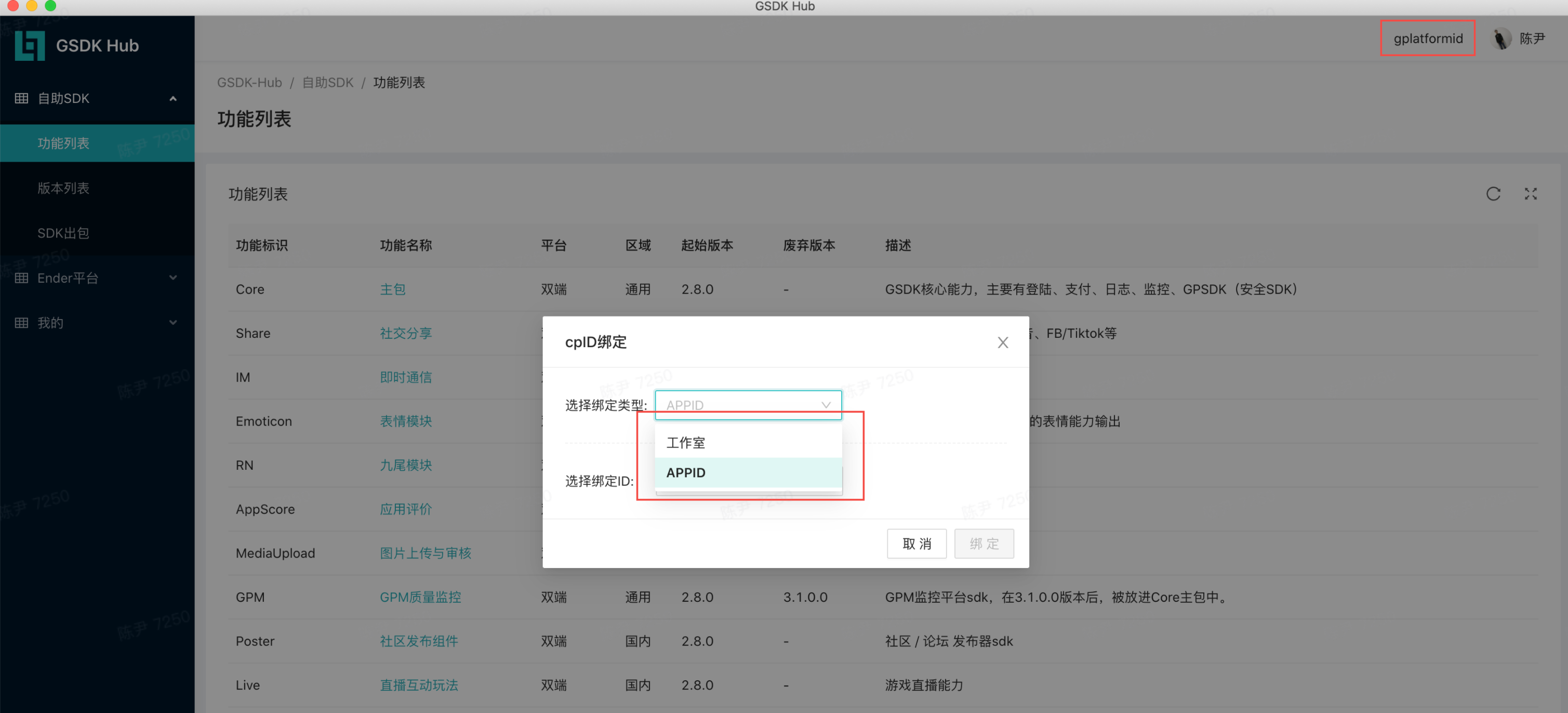
Function list
Introduction
After the GSDK has undergone component transformation, it has become a collection of functions. The information displayed here is the core function list supported by the GSDK. This information is the basic function of later version management and package management. In the function list, each function contains the following information.
| Column Name | Description | Additional Information |
|---|---|---|
| Component name | Component name | |
| Component identification | Key of the component, globally unique | |
| Platform | Cross-platform / Android / iOS | There are some components, only available in a singe platform, such as Thanos |
| Region | General / Domestic / Overseas | |
| Starting version | From which GSDK version the component is available | |
| Obsolete version | From which GSDK version the component was obsolete | |
| Description | A brief description of the component |
Sample Interface
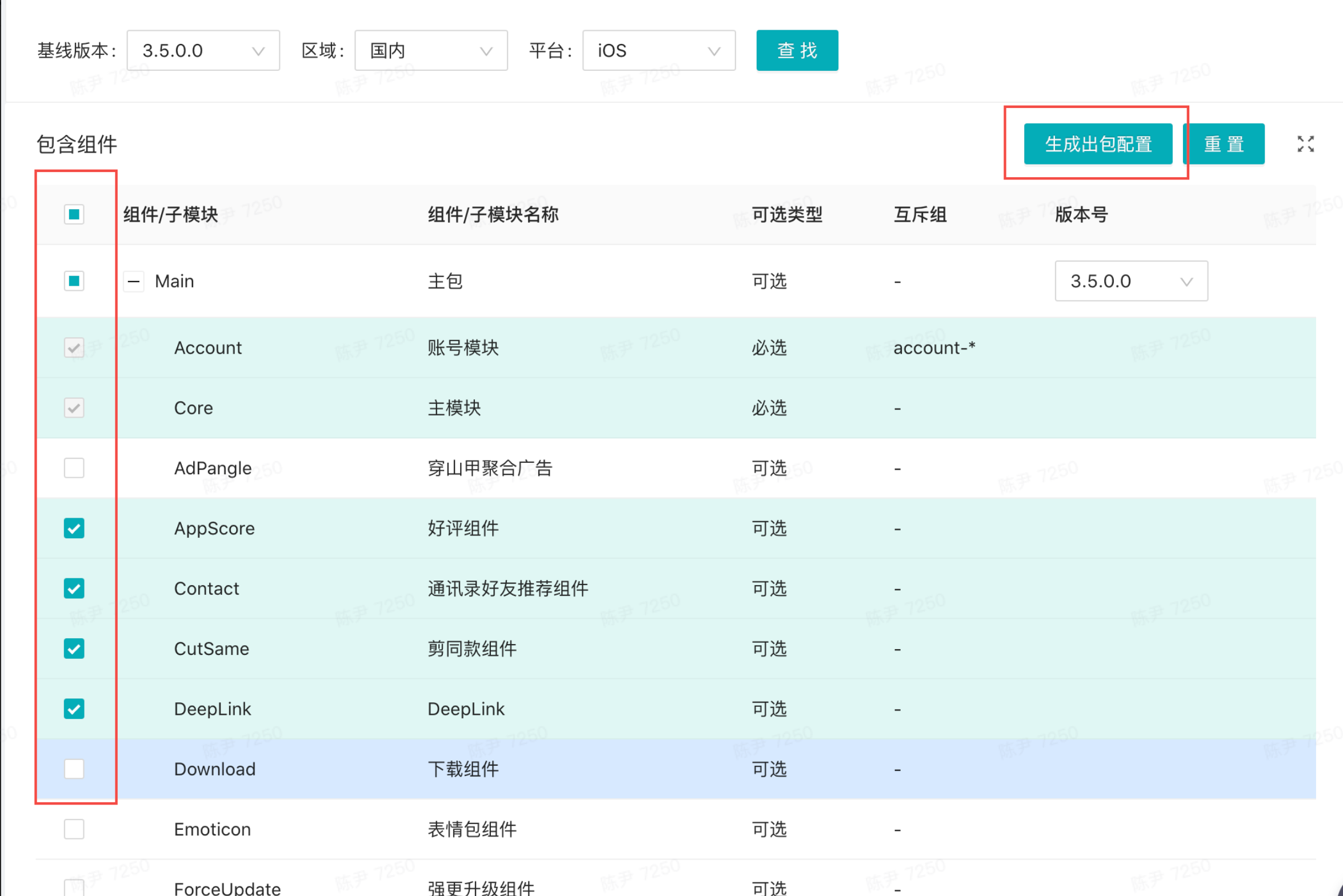
Supplementary Description
- Android's package generation is building a configuration of the corresponding component, so the package generation delay is 0.
- The iOS package generation is building a dynamic library of the corresponding component in real time, and it usually takes 5-10 minutes to wait
- The Unity package generation is to produce a UnityPackage of the corresponding component in real time. Generally, it takes 15-20 minutes to wait
- If the same package generation configuration has been recorded before, the cache will be reused, and the package generation delay is 0
Why is it a dynamic library?
- The dynamic library can be loaded on demand, and the package size can be minimized.
- Thoroughly solve the problem of symbol conflicts.
- Technology: Does not affect the text section of the game app.
- GSDK symbol table management is in Game Tech Center
Configuration List
Introduction
This function is mainly to record all the configuration building records of the user. Each package generation record includes: the GSDK version of the package, area information, platform information, component set, package generation time, and package generation related operations.
For each configuration record, GSDK-Hub provides some management operations. as follows:
- Delete: delete personal package generation records
- Remarks: add remarks to a certain package generation record, which is convenient for recording memories
- Download: For iOS/Unity, the package is generated on CDN and can be downloaded locally
- Package generation: For iOS/Unity, you need to get the required dynamic library based on the information in real time.
- Detailed: View the standard DSL display of the record
- View Gradle configuration: For Android, according to the selected configuration, you will actually get a Gradle configuration suggestion file
Sample Screenshot
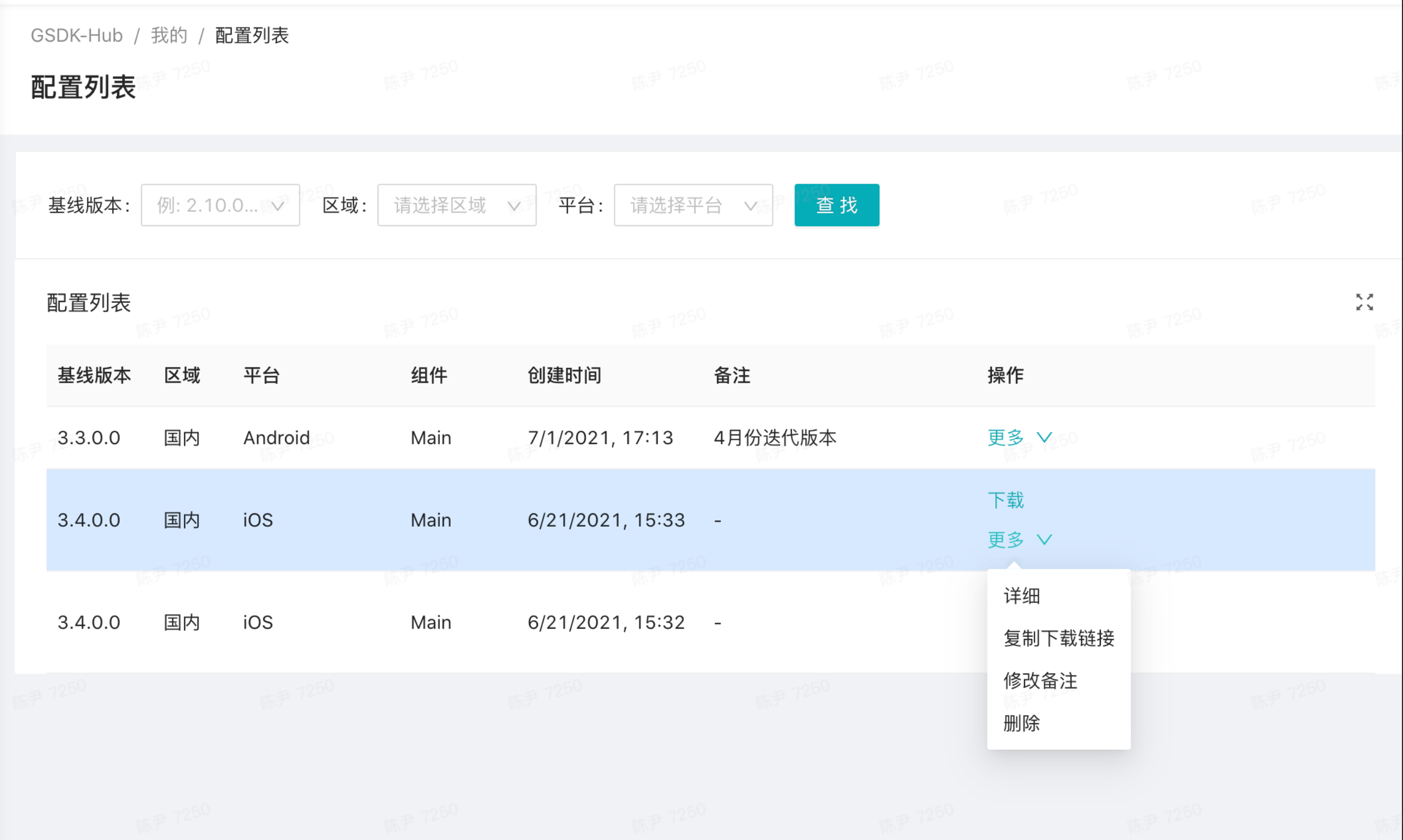
Project History
Introduction
This function is mainly to record local projects for the automated integration of SDK. Each record includes: basic project information (project name, path), type (Xcode Project/Unity project), target (SDK needs to be integrated into the target of Xcode Project), etc.
For engineering records, GSDK-Hub provides some management operations. as follows:
- Delete: delete the project record (only delete the record, it will not affect the local project)
- Modification: Modification of basic project information, remarks, etc.
- Integration: For iOS/Unity projects, select a self-packaged SDK for automated integration
Sample Screenshot
Project list:

Choose SDK:
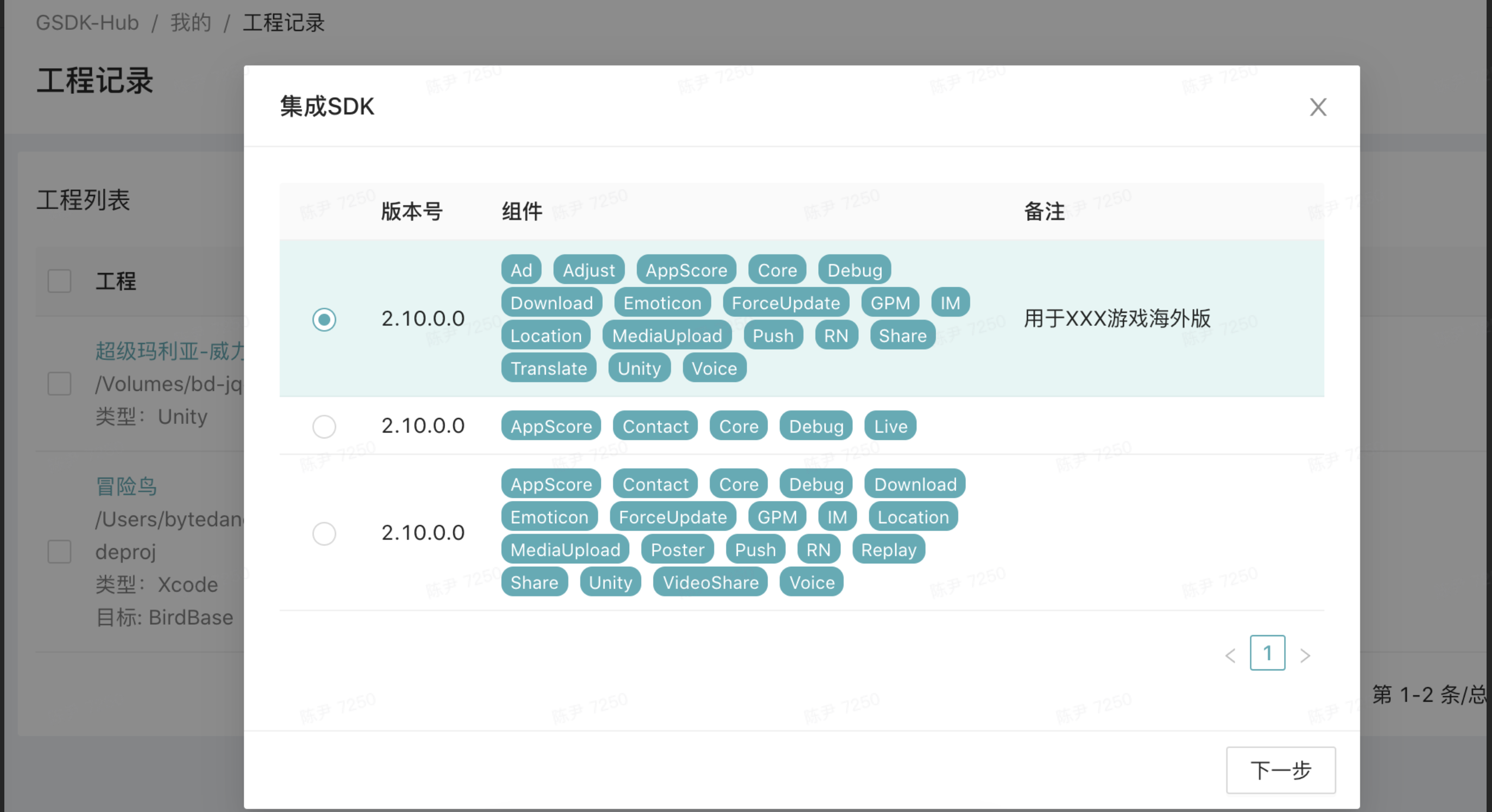
The xcode project needs to select the target:
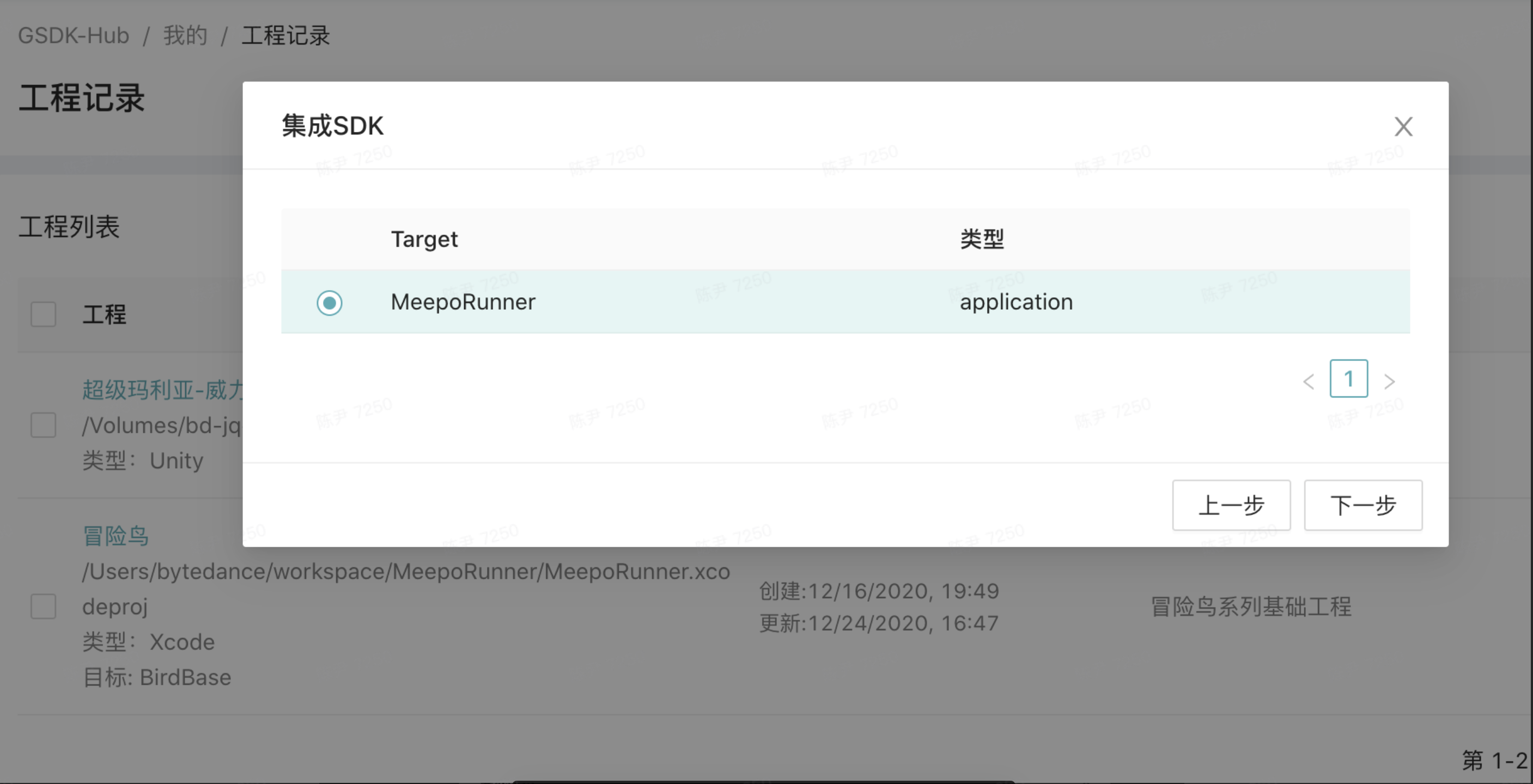
Start integration:
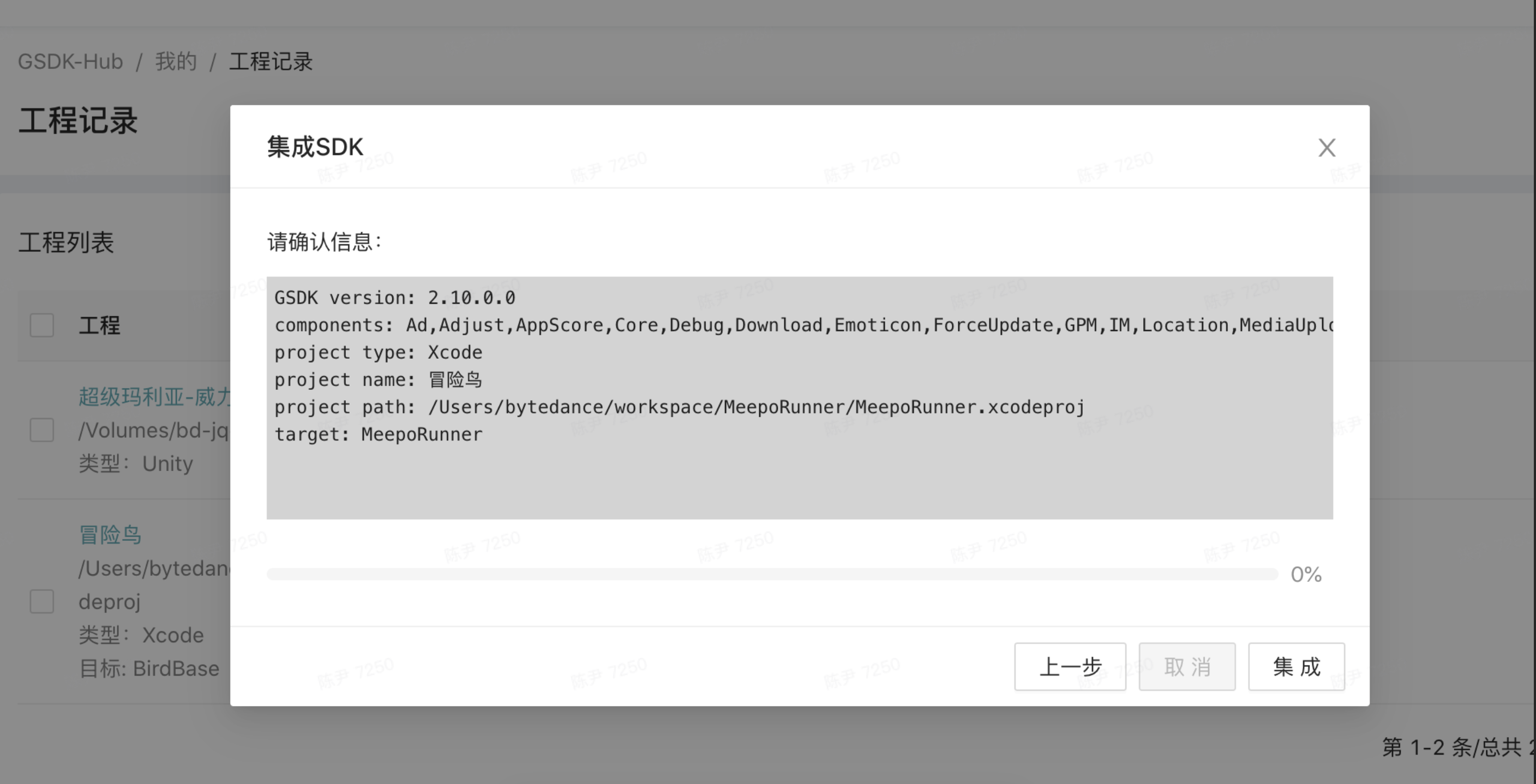
Settings
Account Settings
Display account information, you can log out
Cache Management
The SDK download/integration will be cached locally. In order to save space, you can clear the cache here without affecting the integrated projects.
Update Management
You can view the latest GSDK-Hub version
Feedback
If you have any problems or have any suggestions for GSDK-Hub, feedback is welcome
Command Line Mode
GSDK-Hub supports command line mode, which can be used for automated integration.
After the windows version is installed, you can run it directly under the command line; before using the mac version, you need to install it first:
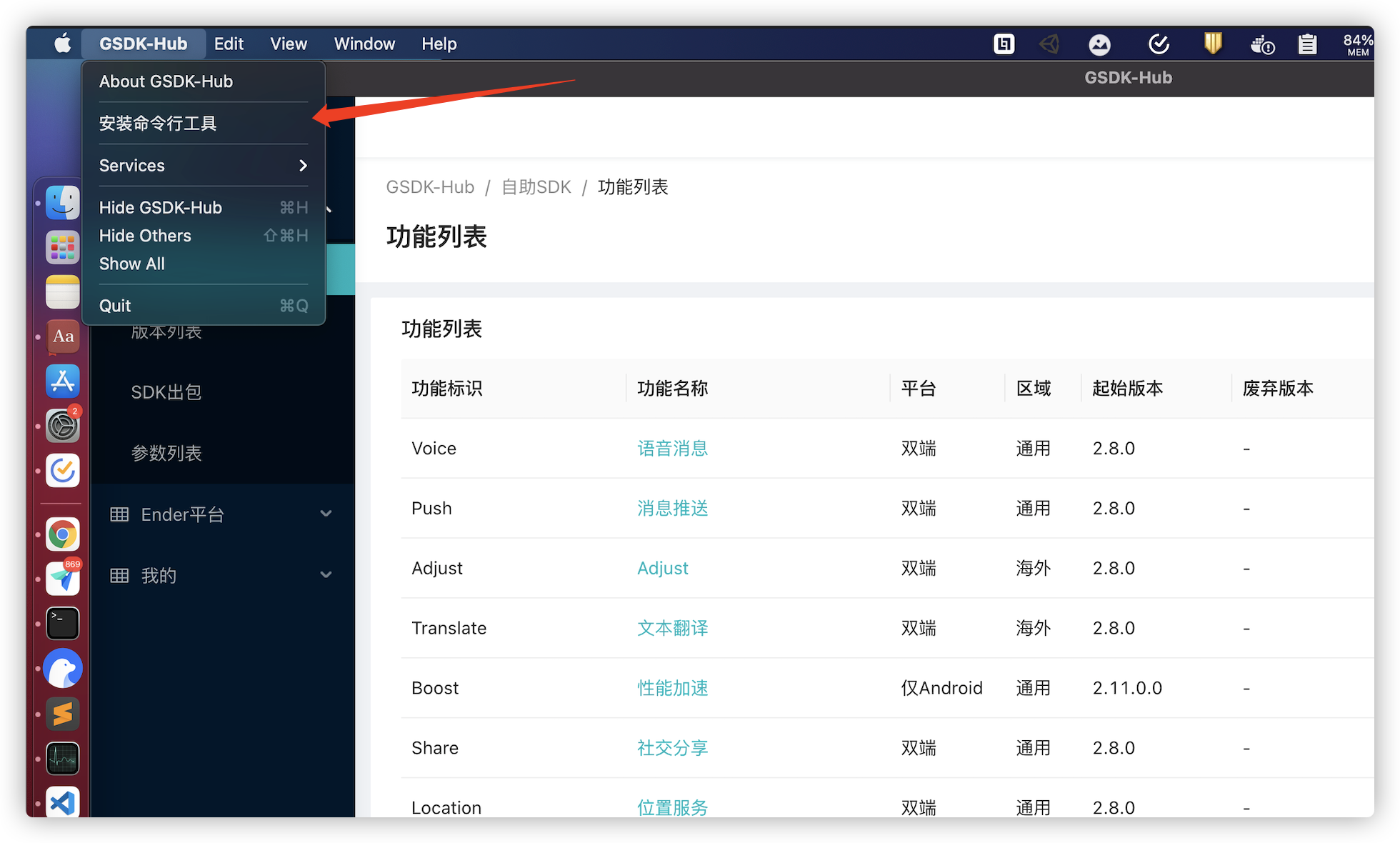
At the same time, you need to make sure that the GSDK-Hub has been successfully logged in, and then you can execute the gsdkhub command in the terminal:
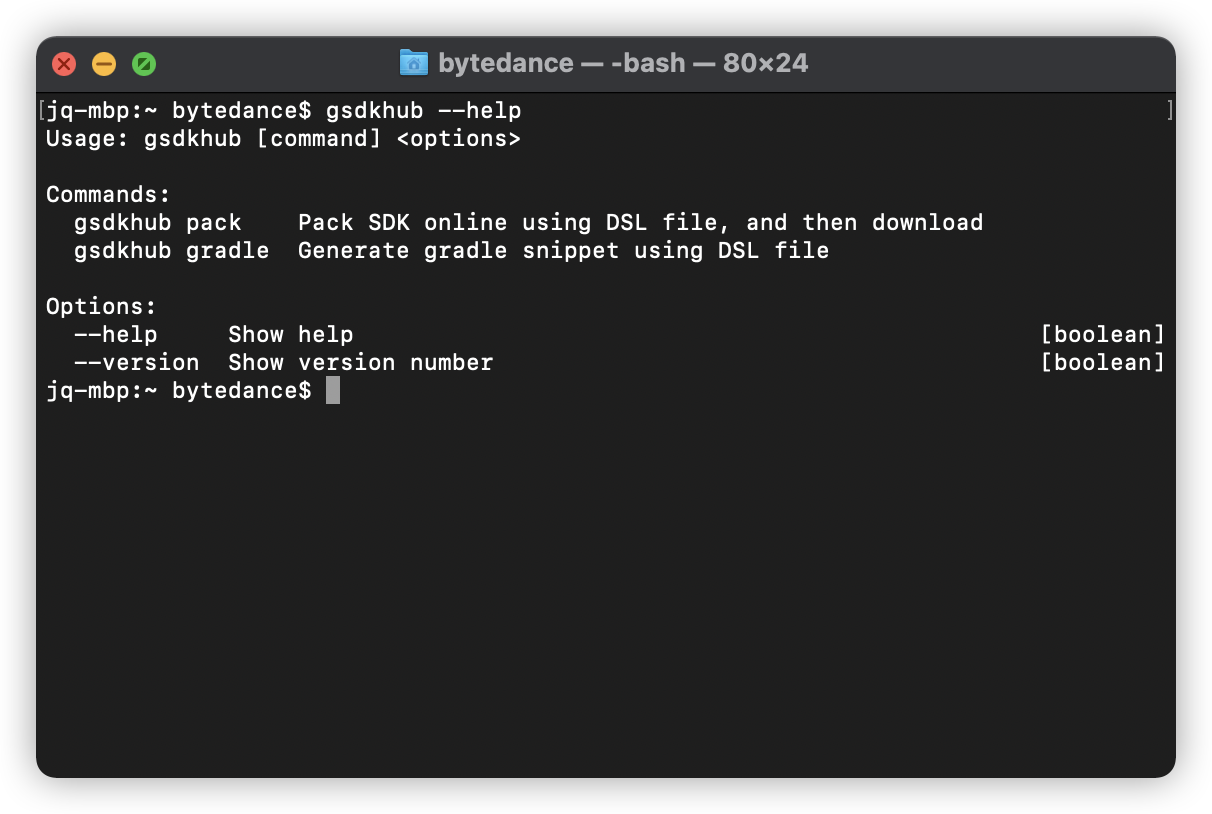
The current version supports two subcommands:
- pack: Build according to the DSL file and save it to the specified directory
- gradle: Generate gradle code snippets according to the DSL file and save to the specified file
The DSL file can be exported from GSDK-Hub GUI mode:
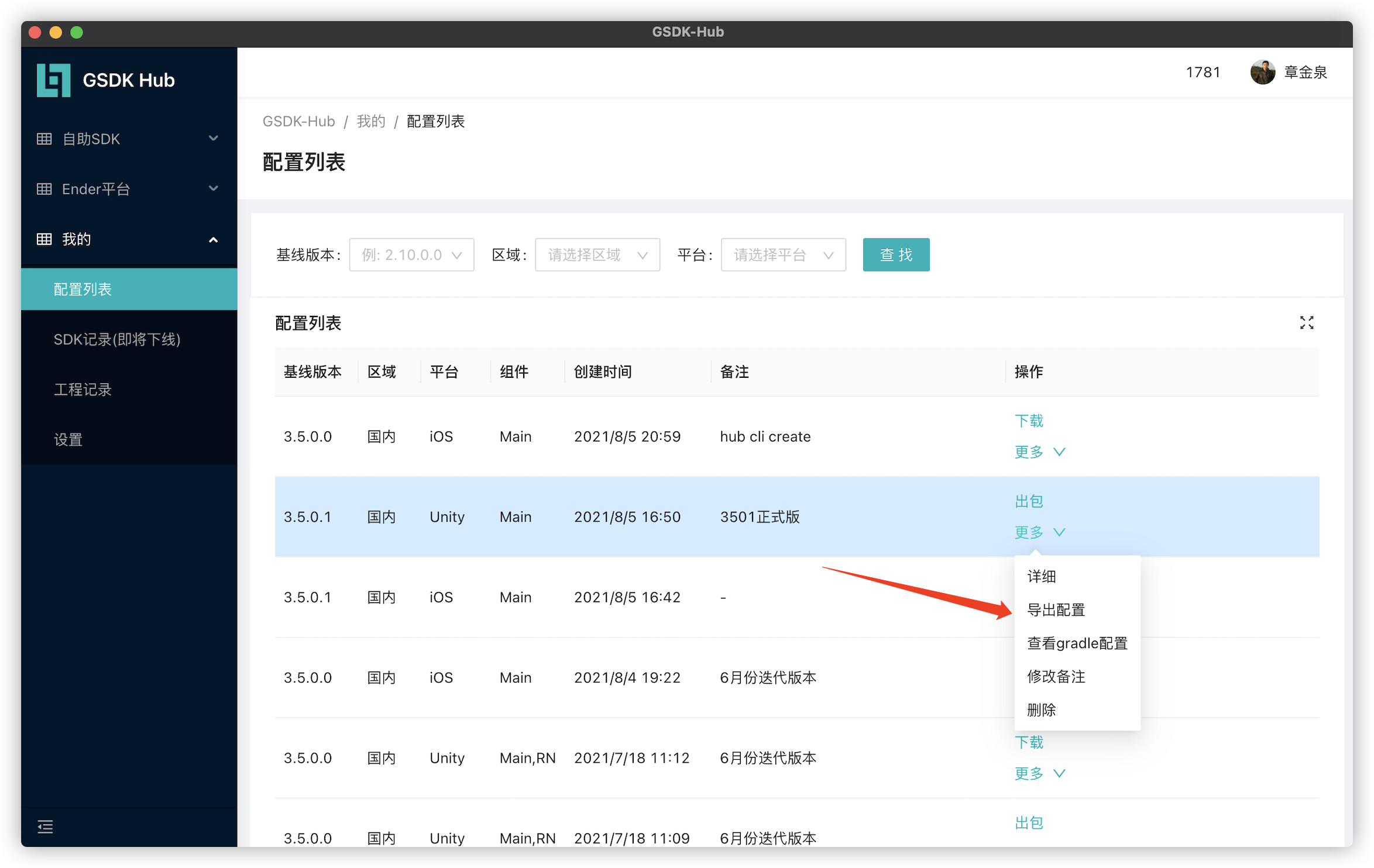
The exported DSL file can be distributed to other people in the project team and used in CLI mode. like:
Build:
gsdkhub pack --dsl ~/Desktop/dsl.json --output.
Generate gradle configuration:
gsdkhub gradle --dsl ~/Desktop/dsl.json --output ./gradle.snippet